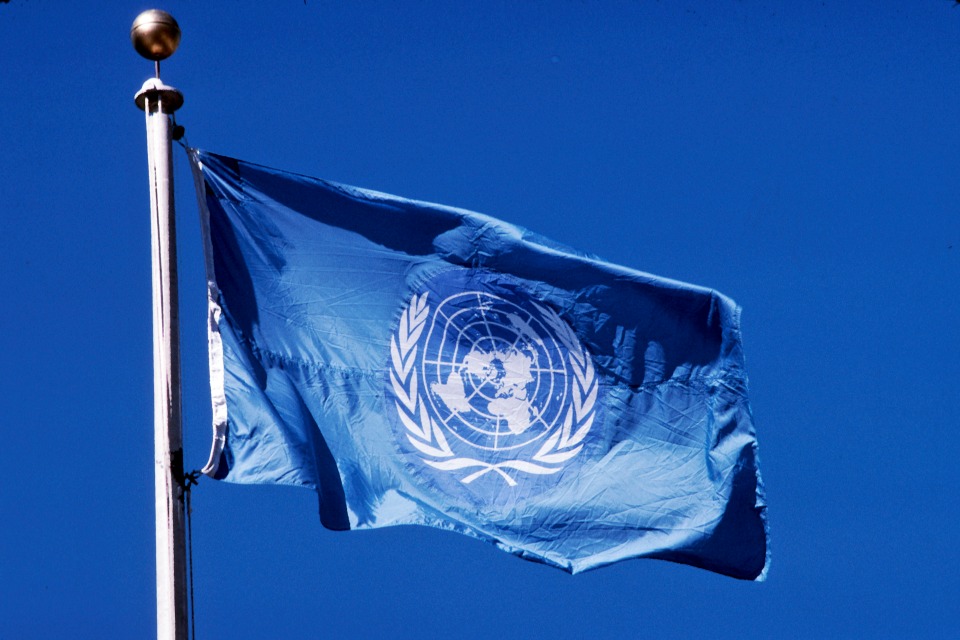"Russia cannot be granted impunity to disregard international law and the UN Charter"
Statement by UK Ambassador Mark Lyall Grant to the UN Security Council meeting on Ukraine

Thank you Madam President,
I thank the Deputy Secretary-General for his briefing and we welcome the Secretary-General’s intent to travel to Moscow and Kyiv this week. We hope that his visit will help persuade President Putin to step back, to de-escalate, to fulfil Russia’s obligations under the UN Charter, to allow OSCE and UN Monitors full access to Crimea and to engage in dialogue with Ukraine.
We also thank Mr Šimonović for his briefing. It is inexcusable that he was denied access to Crimea, but we applaud his efforts to gather information from the peninsula via other means. His report on the extent of Human Rights violations in Crimea is of serious concern. Cases of arbitrary arrest and detention, torture and ill-treatment, disappearances and population displacements, directly contradict Russia’s claims to the contrary.
We share Mr Šimonović’s concerns about the gross human rights violations that took place under the previous Ukrainian Government. In this context we welcome the new Ukraine Government’s request for UN Monitors to investigate these concerns and their commitment to reflect Ukraine’s rich linguistic, ethnic and cultural diversity. We urge the rapid deployment of the UN monitors across the country.
Madam President,
Last Saturday, fourteen Council members underlined their commitment to Ukraine’s unity and territorial integrity. Russia was urged to distance itself from the referendum set to take place the next day in Crimea. Our aim was to avoid further escalation and to ask Russia to heed the views of the international community.
Russia has rejected that message. It rejected it on Saturday by vetoing a resolution that carried the overwhelming support of this Council. And yesterday, following the referendum, it underlined its disregard for our appeals for calm and for de-escalation by announcing new laws to incorporate Crimea into the Russian Federation.
The Permanent Representative of Russia spoke about this process being in compliance with international law, without outside interference and through a democratic process. It is hard to know which of these three assertions is the biggest lie.
Sunday’s referendum was a mockery of democratic practice. It was illegal under the Ukrainian constitution, arranged at 10 days notice, met none of the OSCE standards for democratic elections, was held under Russian military occupation, and gave the people of Crimea no option to vote for the status quo.
Neither this referendum, nor the succession of increasingly desperate, contradictory and inconsistent legal arguments put forward by Russia can conceal the stark reality of its actions. Russia has annexed part of the sovereign territory of an independent UN member state through use of military force.
Russia claims not to be bound by any of its previous obligations and commitments in respect of Ukraine, including the 1994 Budapest Memorandum, on the grounds that it does not regard the new Government in Ukraine as legitimate. But treaties and international agreements are between States, not Governments. A change in Government in Kyiv does not absolve Russia from its international obligations and commitments.
Madam President,
We are witnessing the illegal behaviour of a large country bullying its neighbours, disregarding international norms and unilaterally adjusting internationally recognised borders to its own advantage.
Yesterday, in his speech to the Federation Council, President Putin said that, and I quote, “in the heart, in the conscience of the people, Crimea has always been, and remains, an inalienable part of Russia”. He went on to add that, because Crimea was a “strategic” territory, it needed to be under the “strong and stable” sovereignty of Russia. Now, at last, after weeks of denial, Russia’s real motives for its military adventurism are admitted.
There are plenty of lessons from history about where this kind of extraordinary logic leads. And one only has to think back to the 1930s to recognise the dangers of a complacent international response when such behaviour occurs.
The UN system, and the framework of international norms which it embodies, was the response of our forefathers to a global conflict that resulted from lawless aggression. The United Nations was designed to provide security to us all by preventing the subjugation of any one.
We all therefore have an interest in upholding the international framework and norms that the UN represents. Russian actions throw into doubt the credibility of this international order. That is why it should be clearly condemned; and why Russia must now face further consequences for its actions.
Madam President,
Russia cannot be granted impunity to disregard international law and the UN Charter.
Even at this late stage, Russia has the option to change course; to heed the message of the international community; and to engage in dialogue with Ukraine. Last week in this Council we all heard the Ukrainian Prime Minister offer to open up such a dialogue with Russia, and yet so far even this basic step has been rejected.
The situation in Ukraine, and the region, is serious. Yesterday another threshold was passed when a Ukrainian serviceman was killed during the storming of a Ukrainian military compound in Crimea by Russian-aligned forces. There are credible reports of Russian inspired provocations across Eastern and Southern Ukraine. We praise the continuing and remarkable restraint of the Ukrainian military. But such actions only underline how close we are to a further dramatic escalation.
But the issue extends far beyond Ukraine’s imperilled borders. The issue before us is about respect for bilateral and international treaties. It is about upholding the UN Charter and international law. These are the frameworks on which we all rely. These are the frameworks that Russia is challenging. We have a collective responsibility to defend everything we have worked so hard to build over the last 70 years.
I thank you.